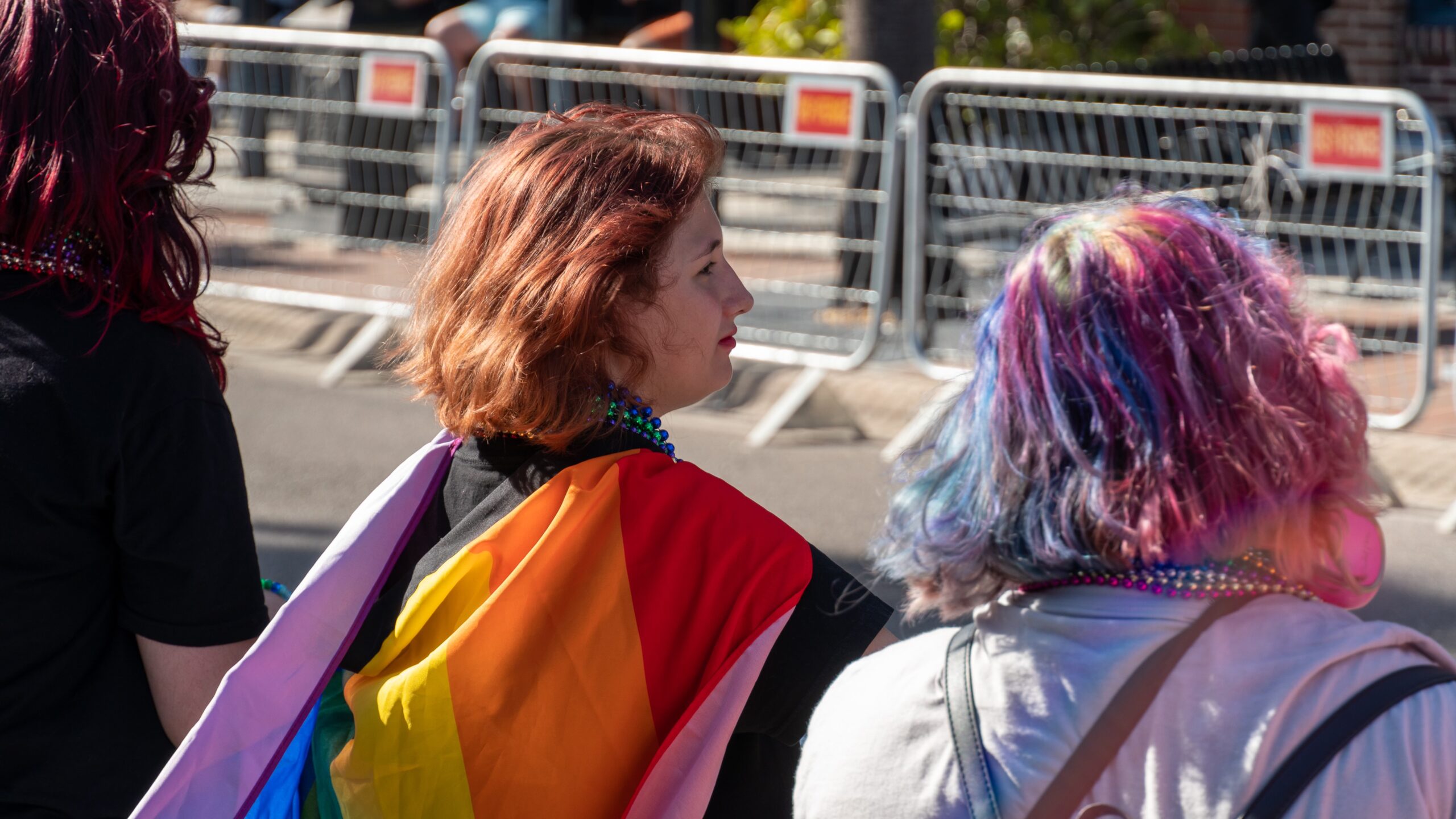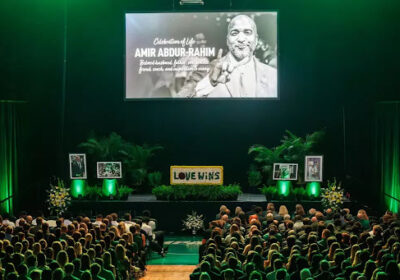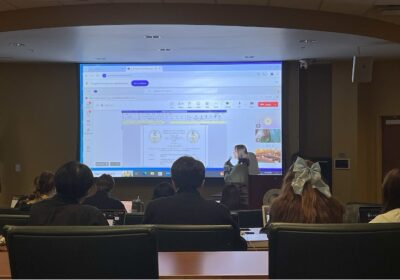LGBTQ+ USF students to be celebrated at Lavender Ceremony

Intimate graduations are held at USF for students who wish to cross the graduation stage in a more personal setting alongside their friends and families.
This year’s Lavender Ceremony is an opportunity for LGBTQ+ students at USF to participate in a graduation ceremony that celebrates their community.
The 2024 USF Lavender Ceremony will be held Thursday at 6 p.m at the Gibbons Alumni Center. Students should contact development officer Melissa Brown for more information.
Winston Jones, the associate dean of students at USF, said the ceremony is a way for students to enjoy what the university has to offer while sharing the experience with their “core group.”
“I believe the ceremony allows students to be their authentic selves and share amongst their core group,” Jones said. “It is an opportunity for our students to be a part of an awareness of their space and their pride.”
But what is a Lavender Ceremony?
Telling USF stories since 1966. Support our future
The Lavender Ceremony is an annual event conducted in multiple colleges across the U.S. to honor LGBTQ+ students and allies by acknowledging their achievements and contributions to their respective university, according to the Human Rights campaign website.
The website also states that the first Lavender Ceremony was held in 1995 at the University of Michigan after Ronni Sanlo, a lesbian professor, was prohibited from attending her children’s graduation due to her sexual orientation.
Sanlo was then encouraged by the college’s Dean of Students to design the first Lavender Graduation Ceremony to provide a sense of community for LGBTQ+ students, according to the website.
The ceremony was named “Lavender” because the color is a mix of two important symbols for the LGBTQ+ community. In Nazi Germany, gay men were required to wear a pink triangle in concentration camps, while lesbians had to wear a black triangle, according to the Lavender Graduation website.
The website explains that the LGBTQ+ civil rights movement transformed these hate symbols into colors of pride.
The first USF Lavender Ceremony was held in 2018 and was a collaboration between the USF Foundation, the Committee on Issues of Sexual Orientation and Gender Identity (CISOGI) and the Office of Multicultural Affairs (OMA), Jones said.
Jones said it took USF 23 years to host its first Lavender Ceremony because that was when students first started to ask for it.
The event has “pretty much” stayed the same over the years, with its biggest change happening during COVID-19 when the ceremony had to be online, Jones said.
In 2021, CISOGI discovered the ability to email all students who registered to graduate. Because of that, the event had a record number of more than 100 LGBTQ+ graduates in attendance, which was held online due to the pandemic, according to CISOGI’s 2020-21 annual report.
Jones said one struggle with bringing the event back post-COVID was students not knowing about the Lavender Ceremony even though every graduating senior who registered to graduate was sent an email invitation.
“It’s only the seventh edition, but I’m surprised and shocked that some students who are LGBTQ+ specifically didn’t know anything about this,” Jones said. “I’m hoping that can get better as we’re going to try to keep helping our students.”
Related: Low student turnout affects LGBTQ+ on-campus events
The ceremony is different from the bigger graduation ceremony because it is an opportunity for students’ families and friends to come and see students walk across the graduation stage in an intimate setting, Jones said.
“This allows for the master of ceremonies to say their names and for them to be seen,” Jones said. “It’s different because it gives such a large institution a personal touch, and I think that’s the key.”
The Lavender Ceremony isn’t the only smaller and intimate graduation event at USF. Other convocations are held by the Honors College, USF Health and the College of the Arts.
Jones said despite the convocations, the university wants students to attend the big USF graduation as well.
Five awards are given during the Lavender Ceremony:
- Student Pride Award
- Staff Pride Award
- Faculty Pride Award
- Outstanding contribution to the LGBTQ+ life at USF
- Outstanding contribution to CISOGI
Jones said the only criteria for receiving pride awards is being someone who supports and contributes to the lives of LGBTQ+ students at USF.
Even though academic awards and scholarships are given out to students during the event, Jones said he is not sure which ones will be given out this year due to delays with FAFSA.
Related: USF students won’t see FAFSA awards until mid-April
The Lavender Ceremony is solely funded by private money, meaning no university funds are involved in the process, Jones said.
Jones said the three groups that organize the ceremony — CISOGI, the USF Foundation and OMA – only support the event in the sense of putting it together.
Jones said that even though students don’t organize the event, OMA recently developed a student programming board. This means that in the future, students will be actively involved in putting the ceremony together.
“Up until recently, the ceremony has been solely organized by those three areas, but that has been changing,” Jones said. “It will be an opportunity for us to engage our students and let them be involved in that process.”






